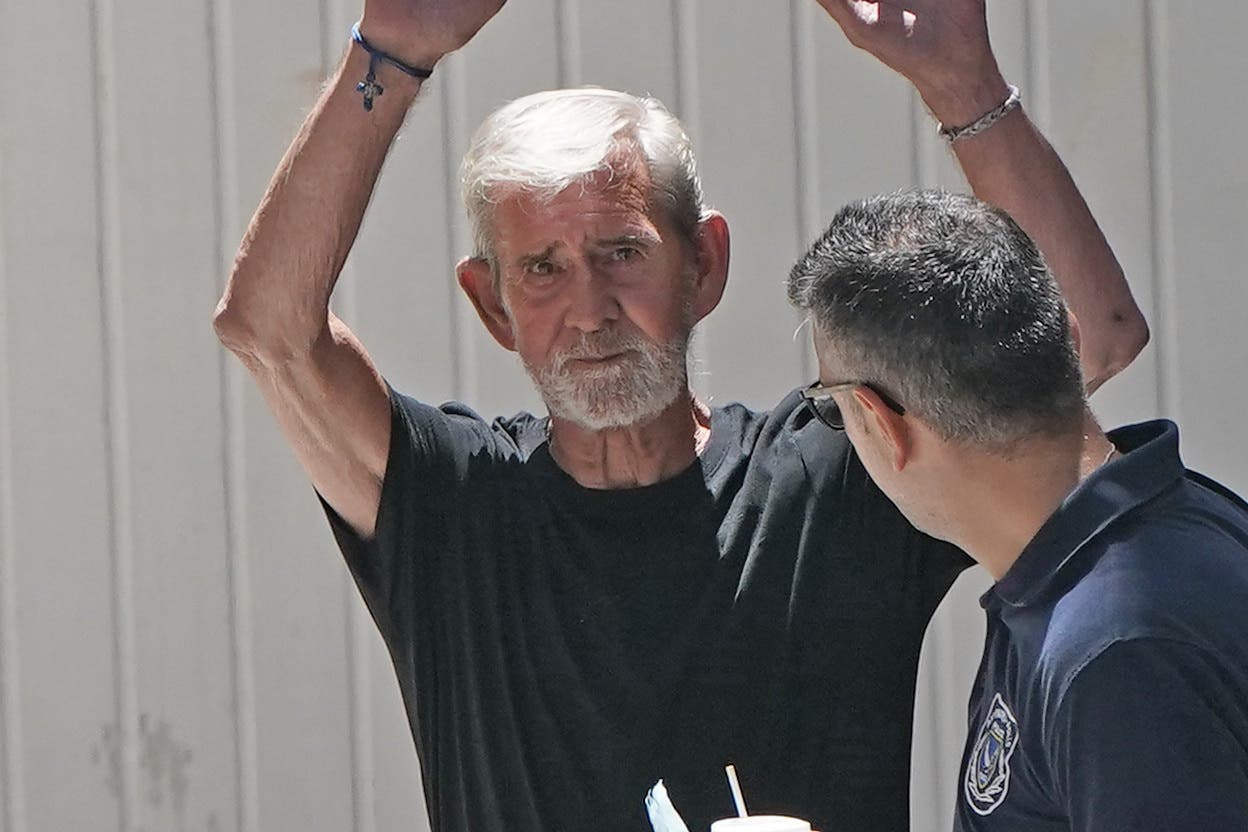Daughter of man cleared of murdering terminally ill wife: ‘We’ve got hope back’
David Hunter, 76, was found guilty of manslaughter for killing his spouse Janice in Cyprus after she ‘cried and begged’ him to end her life.

The daughter of a retired British miner cleared of murdering his terminally ill wife has said it would be “like having our lives back” if he is released from prison in Cyprus next week.
David Hunter, 76, was found guilty of manslaughter for killing his spouse of 52 years, Janice, after she “cried and begged” him to end her life as she suffered from blood cancer.
She died of asphyxiation at their home near the coastal resort town of Paphos in December 2021.
The pensioner, from Ashington in Northumberland, will be sentenced on July 27 after judges found him not guilty of the more serious charge of premeditated murder.
My dad’s not a murderer. My dad’s never been a murderer. Now everybody knows that. It’s incredible. It’s just incredible. I can’t believe it
Lawyer Michael Polak, director of Justice Abroad, told the PA news agency the expat may be able to get a suspended sentence in light of the verdict, in a case which is a legal first in the country.
Hunter was “speechless” and “too tired to smile” following the verdict, Mr Polak added.
Speaking after the verdict on Friday, the couple’s daughter Lesley Cawthorne said: “I’m just genuinely stunned. I can’t believe it – I am just so pleased.
“My dad’s not a murderer. My dad’s never been a murderer. Now everybody knows that. It’s incredible. It’s just incredible. I can’t believe it.
“If it had been premeditated murder, there was no chance he’d ever see the light of day again, but this gives us a real chance.”
Describing the torment of the last 19 months, Ms Cawthorne said: “It’s been huge. I feel like it’s aged me, and it’s worn us down and depleted our emotional reserves.
“We are exhausted and drained. It has literally crushed all hope out of me and made it hard to find the kind of joy in life.
“But now we’ve got hope back, and we can see some light at the end of the tunnel.”
On what she is looking forward to most if Hunter is freed, Ms Cawthorne said: “Just hugging him and giving him a decent meal. Just giving him some food.
“I know it means so much to him. Knowing that he can go to see my mum’s grave and he can see my mum and he can say his goodbyes properly and calmly. It’s unbelievable.”
Ms Cawthorne also said she felt her mother’s presence on the morning of the verdict for the first time since she died.
Hunter’s ex-miner friend Barry Kent, 67, told reporters the verdict is the “best outcome” and he is looking forward to having a beer with him if he leaves prison soon.
Mr Polak told PA after the verdict: “Being found not guilty of murder means he avoids a life sentence, which would have resulted in him dying in prison here in Cyprus.
“The manslaughter conviction, which we think is appropriate, will mean the court has a clean slate to sentence him how they see fit.
“We are fairly hopeful and what we are going to do is put together case law from across the Commonwealth where these cases have been sentenced before.”
In May, Hunter broke down in tears as he told his trial, which lasted more than a year, that he would “never in a million years” have taken his wife’s life unless she had asked him to.
He added: “She wasn’t just my wife, she was my best friend.”
Hunter showed the court how he held his hands over his wife’s mouth and nose and said he eventually decided to grant his wife’s wish after she became “hysterical”.
He said: “For five or six weeks before she died she was asking me to help her. She was asking me more every day.
“In the last week she was crying and begging me. Every day she asked me a bit more intensely to do it.”
Before he finished giving evidence, Hunter asked to address the judge, who he told: “My wife was suffering and she actually said: ‘I don’t want to live any more,’ and I still said no.
“Then she started to become hysterical. I was hoping she would change her mind. I loved her so much. I did not plan it, I swear to God.”
At trial, the prosecution said he “had decided to kill her and there was no common consent”.
During closing speeches in June, his defence team said it was not a case of premeditated murder and Hunter “acted spontaneously” to end his wife’s life “upon her begging him to do so”.
They have also argued a confession he is said to have made when he was arrested should not have been used against him, claiming he was suffering from dissociation at the time.
